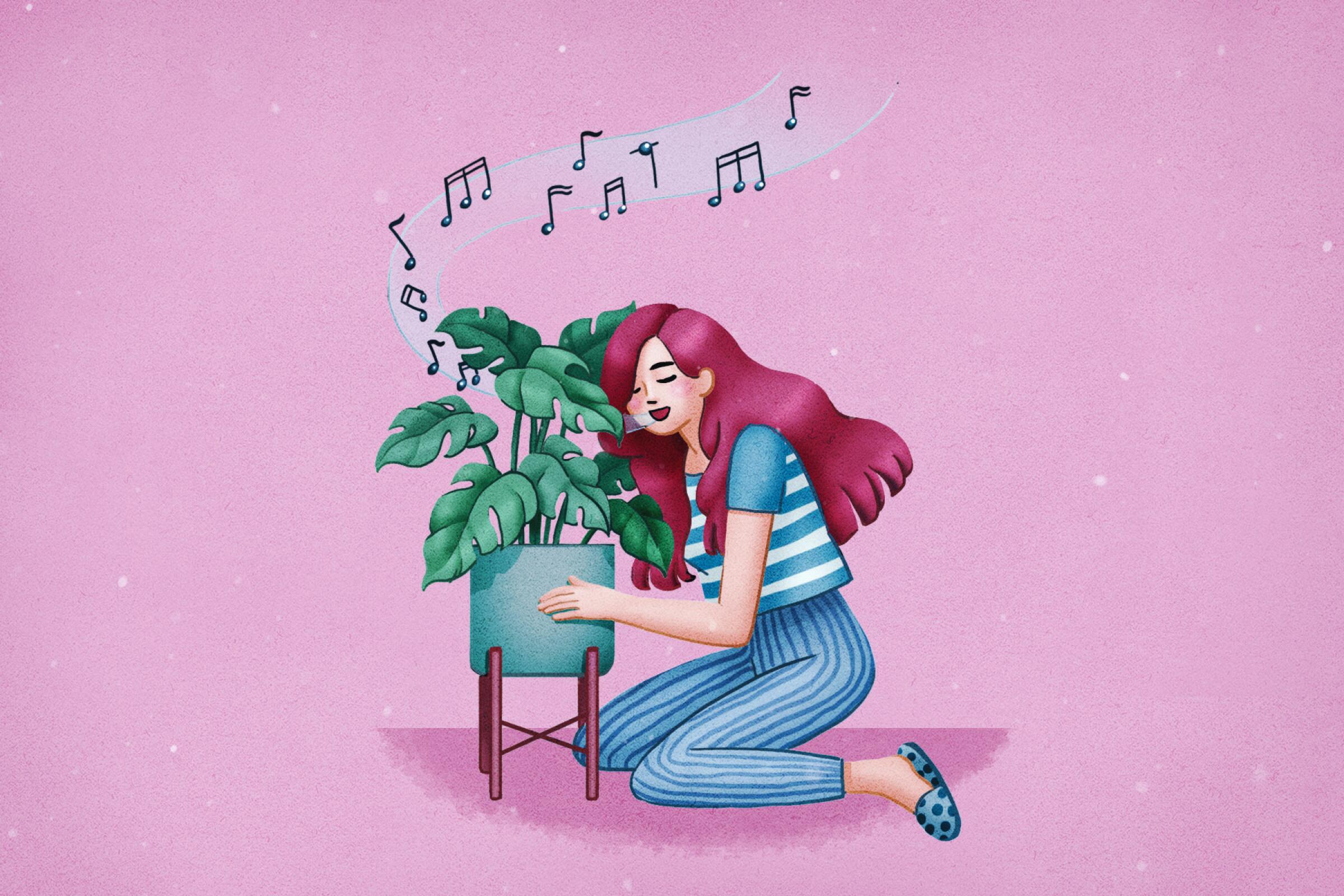Sign up for The Wild
We’ll help you find the best places to hike, bike and run, as well as the perfect silent spots for meditation and yoga.
You may occasionally receive promotional content from the Los Angeles Times.

You water them. You mist them. You talk to them. You even apologize to them.
But should you sing to your houseplants?
There is some research that suggests you should.
In a 2014 study at Osmania University in Hyderabad, India, 30 roses were exposed to Indian classical music, Vedic chants, Western classical music and rock music. At the end of the 60-day experiment, the roses that had been subjected to Vedic chants and Indian classical music far outperformed the silent control group.
In a less scholarly, but equally fascinating study, the TV show “Mythbusters” explored the correlation between music and plants in a 2009 episode. Over a month-long period, sweet peas “listened” to heavy metal and classical music in self-contained greenhouses. Others were exposed to kind talk and abusive dialogue. At the end of the month, the heavy metal greenhouse produced the most robust sweet peas, and the silent control group performed the worst.
In a 2007 study, Mi-Jeong Jeong of the National Institute of Agricultural Biotechnology in Suwon, South Korea, and his colleagues claimed to identify plant genes that can hear and respond to music after rice plants responded well to Beethoven’s “Moonlight Sonata.”
Some scientists say it isn’t just music, but sound vibrations that affect plants.
In a 2014 study, scientists Heidi Appel and Rex Cocroft of the University of Missouri found that tiny mustard plants responded to the sound vibrations of a caterpillar chewing through their leaves.
We’ve all seen it happen: A plant that looked so lush and lovely in the store curls up and dies once it enters your home.
And in a 2009 study, the Royal Horticultural Society learned that tomato plants responded favorably to female voices — rather than male voices — after listening to volunteers read to them over a 30-day period. In an ironic twist, the winning tomato listened to Sarah Darwin, great-great-granddaughter of Charles Darwin, read “On the Origin of Species.”
We know that houseplants respond to light and water. But can Beethoven really make them grow faster? Some scientists don’t buy it.
Still, it can’t hurt to keep talking and singing to your plants, especially if it makes you feel good, and you sound a lot like Doro.
Sign up for The Wild
We’ll help you find the best places to hike, bike and run, as well as the perfect silent spots for meditation and yoga.
You may occasionally receive promotional content from the Los Angeles Times.